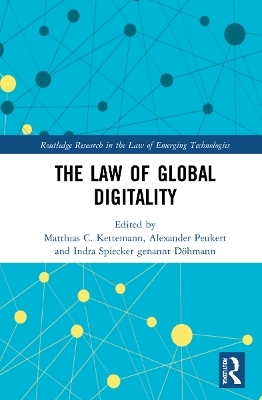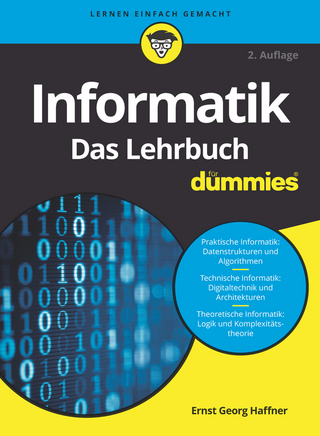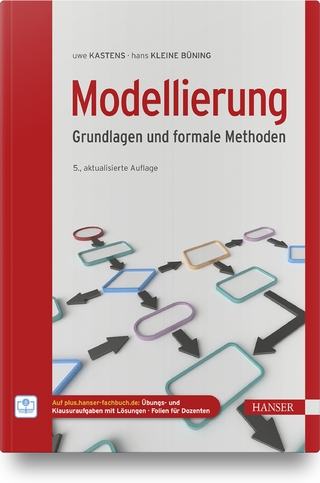
The Law of Global Digitality
Routledge (Verlag)
978-1-032-25550-7 (ISBN)
The Internet is not an unchartered territory. On the Internet, norms matter. They interact, regulate, are contested and legitimated by multiple actors. But are they diverse and unstructured, or are they part of a recognizable order? And if the latter, what does this order look like?
This collected volume explores these key questions while providing new perspectives on the role of law in times of digitality. The book compares six different areas of law that have been particularly exposed to global digitality, namely laws regulating consumer contracts, data protection, the media, financial markets, criminal activity and intellectual property law. By comparing how these very different areas of law have evolved with regard to cross-border online situations, the book considers whether cyberlaw is little more than "the law of the horse", or whether the law of global digitality is indeed special and, if so, what its characteristics across various areas of law are. The book brings together legal academics with expertise in how law has both reacted to and shaped cross-border, global Internet communication and their contributions consider whether it is possible to identify a particular mediality of law in the digital age.
Examining whether a global law of digitality has truly emerged, this book will appeal to academics, students and practitioners of law examining the future of the law of digitality as it intersects with traditional categories of law.
Matthias C. Kettemann, LL.M. (Harvard), is Professor of Innovation, Theory and Philosophy of Law at the Department for Theory and Future of Law at the University of Innsbruck, and heads research programs and groups on digital law and platform governance at the Leibniz Institute for Media Research | Hans-Bredow-Institut (Hamburg) and the Humboldt Institute for Internet and Society (Berlin). Alexander Peukert is Professor of Civil and Commercial Law at the Faculty of Law at Goethe University Frankfurt am Main. Indra Spiecker gen. Döhmann, LL.M. (Georgetown University) holds the chair of Public and Administrative Law, especially Information Law, Environmental Law and Legal Theory at the Goethe-University of Frankfurt/Main in Germany. She is also Director of the Research Institute on Data Protection, Managing Director of the Institute of European Health Politics and Social Law, both at Goethe University of Frankfurt/Main, and also Principal Investigator with the Competence Center on IT-Security (KASTEL) at the Karlsruhe Institute of Technology (KIT). Professor Spiecker publishes in the entire field of constitutional and administrative law with a special focus on information law as well as technology law.
List of Contributors
Introduction: The Law of Global Digitality
ALEXANDER PEUKERT AND MATTHIAS C. KETTEMANN
1 Context, Subject Matter and Aim of This Book
2 Chapter Overview
2.1 Intellectual Property Law
2.2 Data Protection/Privacy
2.3 Consumer Contract Law
2.4 Media Law
2.5 Financial Regulation and Criminal Law
PART I Intellectual Property
1 Towards a Legal Methodology of Digitalisation: The Example of Digital Copyright Law
THOMAS RIIS AND JENS SCHOVSBO
1 Introduction
1.1 Characteristics of Copyright Law
2 Digitalisation in Action
2.1 Legislating Digitalisation
2.1.1 New Subject-Matter: Sui Generis Regulation or Adaptation of Existing Rules?
2.1.2 Designing Flexibility
2.1.3 Assessment
2.2 Adjudicating Digitalisation
2.2.1 Online Exhaustion
2.2.2 Linking
2.3 Summing Up
3 Methodological Shifts in Legal Digitalisation
3.1 The Shift From Substantive Law to Procedural Law
3.2 The Shift Towards Globalisation
3.3 The Shift Towards Horizontally Based Law
3.4 The Shift From State-Enacted Law to Contract and Code
4 Final Remarks
2 Transnational Intellectual Property Governance on the Internet
ALEXANDER PEUKERT
1 Introduction
2 IPR Enforcement
2.1 Takedown Orders of Courts: De Iure and de Facto Effects
2.2 Intermediaries’ Enforcement Measures
2.2.1 The Central Role of Intermediaries
2.2.2 Intermediaries’ Enforcement Measures and Their Transnational Effect
2.2.2.1 Domain Name Registrars
2.2.2.2 Access Providers
2.2.2.3 Host Providers and Search Engines
2.2.2.4 Follow the Money: Advertising and Payment Services
2.2.3 Summary
3 Licensing IPRs
4 Conclusion
PART II
Data Protection/Privacy
3 The More the Merrier: A Dynamic Approach Learning From Prior Misgovernance in EU Data Protection Law
INDRA SPIECKER GEN. DÖHMANN
1 Introduction
2 The Historical Approach to Data Protection Law—An Overview
2.1 Goals
2.2 Instruments
3 Reaction of Today’s Data Protection Law to the Challenges of Global Digitality
3.1 Core Regulatory Goals
3.1.1 Data Protection as a Safeguard of Democracy
3.1.2 Power Asymmetry
3.1.3 GDPR as Unifier
3.2 Core Regulatory Instrumental Approach
3.2.1 Precautionary Principle Versus Risk-Based Approach and the Concept of Technological Neutrality
3.2.2 Data Protection Law as Consumer Protection and Fair Competition Law
3.3 Content Regulation
3.3.1 Enforcement Deficit
3.3.2 Territorial Scope
3.3.3 Enforcement of the Enforcement
3.3.4 Internet Regulation
4 Conclusion and Outlook
4 Giving the Invisible Hand a Relatively Free Hand: Data Privacy in the US and the Unfortunate, but Lawful, Commodification of the Person
RONALD J. KROTOSZYNSKI, JR.
1 Introduction: The Myriad Cultural and Legal Difficulties of Safeguarding Informational Self-Determination Against Non-Government Actors in the US
2 The First Amendment Will Make Comprehensive Personal Data Protection Laws Difficult to Enact and Enforce 1
3 The Patchwork Quilt of Federal Statutory Privacy Protections and the First Amendment
4 Constitutional Data Privacy Rights, the State Action Doctrine, and the Scope of Constitutional Rights in the US
5 Why Does the US Lack Strong, General Personal Data Protections Against Non-Governmental Entities?
6 Global Digitality, Personal Data Protection, and "The Law of the Horse"
7 Conclusion
PART III
Consumer Contract Law
5 The Challenge of Globalized Online Commerce for U.S. Contract and Consumer Law
CHRISTOPHER G. BRADLEY
1 Introduction
2 A Ragged Patchwork of Consumer Protection Laws, Regulations, and Institutions
3 The Limits of Technological Approaches to Consumer Protection
4 Not Ready to Restate: A Rejected Consumer Contracting "Bargain"
5 Marshaling Doctrinal, Regulatory, and Technological Protections for Consumers in the Digital Age
6 Conclusion
6 Paradigms of EU Consumer Law in the Digital Age
FELIX MAULTZSCH
1 Introduction
2 The Market-Centred Approach to Contract Law
3 International Jurisdiction and Conflict of Laws: Connecting Factors
4 Extra-Territorial Application of EU Consumer Law
5 Trends in Substantive EU Sales Law
6 Alternative Means of Dispute Resolution and Enforcement of Consumer Rights
7 Private Governance by Contract and Technology
8 Conclusions
PART IV
Media Law
7 Law of Digitality: Media Law—U.S. Perspectives
ELLEN P. GOODMAN
1 Digital Platform Disclosure Obligations for Political and Commercial Advertising
2 Digital Platform Disclosure Obligations for Deep Fakes and Bots
3 Government Access Obligations Under the First Amendment’s Public Forum Doctrine
4 Digital Platforms’ Exposure to Liability as Publishers and Distributors
4.1 Judicial Interpretations of Section 230
4.1.1 Herrick v. Grindr LLC
4.1.2 Force v. Facebook, Inc.
4.2 Territorial Question
5 Intermediary Liability Reform Proposals
5.1 Ex Post Duty of Care
5.2 Creating Genre-Based Statutory Limitations
5.3 Creating Narrow Content-Based Carve-Outs
5.4 Expanding the Definition of Content "Development"
5.5 "Political Neutrality" Mandates
5.6 Section 230 as Regulatory Leverage
5.7 Requiring User-Identification Procedures
5.8 Knowledge-Based Standard
6 U.S. Initiatives to Counter Disinformation
8 European Media Law in Times of Digitality
STEPHAN DREYER, MATTHIAS C. KETTEMANN, WOLFGANG SCHULZ AND THERESA JOSEPHINE SEIPP
1 Introduction
2 The European Communication Order in Digitality
2.1 Media-Specific Legal Instruments
2.2 Sector-Specific Legal Framework
2.2.1 E-Commerce and Electronic Services Law
2.2.2 Telecommunications Law
2.2.3 Contract and Consumer Protection-Related Specifications in the Media Sector
2.2.4 Special Provisions Under Competition Law
2.2.5 Special Provisions Applicable to Intellectual Property Rights
3 Reform of Europe’s Media Order
3.1 The Year of Reform
3.2 Digital Services
3.3 Digital Markets
4 Conclusions
PART V
Financial Regulation and Criminal Law
9 Regulating Virtual Currencies
ROLAND BROEMEL
1 Digital Currencies as a Form of Global Digitality
1.1 Digital Currencies as a Digital Phenomenon
1.1.1 Blockchain as a Specifically Digital Technology
1.1.2 Added Value of Payment Data
1.1.2.1 Data as a Commercial Factor: Cross-Market Business Models
1.1.2.2 Impact on Digital Payment Services and Currencies
1.1.2.3 Development of Digital Ecosystems in Digital Financial Services
1.1.2.4 Ecosystems in Digital Currencies
1.2 Virtual Currencies as a Specifically Global Phenomenon
1.2.1 Technical Factors of Globality
1.2.2 Economic Factors of Globality
1.2.2.1 Exchange Costs and Economic Functions of Money
1.2.2.2 Part of the Network Instead of a Geographical Area
2 Legal Framework of Virtual Currencies
2.1 Adaptation
2.1.1 Banking Supervision Law
2.1.1.1 Virtual Currency as Category: Unit of Account or Crypto Value
2.1.1.2 Regulatory Assessment of the Activities
2.1.2 Stablecoins as E-Money?
2.1.3 Civil Law
2.1.4 Securities Law
2.2 Specific Challenges of Digitality
2.2.1 Prevention of Money Laundering and Financing of Terrorism
2.2.2 Investor and Consumer Protection in the Issuing of Virtual Currencies
2.2.3 Specific Regulatory Requirements for "Value-Referenced Tokens"
3 Conclusion
10 Criminal Law of Global Digitality: Characteristics and Critique of Cybercrime Law
BEATRICE BRUNHÖBER
1 Defining Criminal Law of Global Digitality
1.1 From Computer Crime to Cybercrime
1.2 Cybercrime Offenses
2 The Challenging Global Dimension of Cybercrime
2.1 Global Challenges
2.2 Approaches to Addressing Global Cybercrime
3 Legislative Approaches
3.1 Distinguishing International From Transnational Criminal Law
3.2 United Nations Measures
3.3 The Council of Europe Convention on Cybercrime
3.4 European Union Framework Decisions and Directives Addressing Cybercrime
3.5 Economic Community of West African States Directive on Fighting Cybercrime
4 Policy Approaches
4.1 United Nations Policy Measures for Addressing Cybercrime
4.2 Regional Policy Strategies for Dealing With Cybercrime
5 Characteristics and Weaknesses of Global Digitality Criminal Law
5.1 Characteristics of Current Global Digitality Criminal Law
5.2 Weaknesses of Present Global Digitality Criminal Law
6 Conclusion
Conclusion: The Law of Global Digitality: Findings and Future Research
MATTHIAS C. KETTEMANN AND ALEXANDER PEUKERT
1 The Theme
2 The Findings
3 Suggestions for Future Research
Index
| Erscheinungsdatum | 13.07.2022 |
|---|---|
| Reihe/Serie | Routledge Research in the Law of Emerging Technologies |
| Verlagsort | London |
| Sprache | englisch |
| Maße | 156 x 234 mm |
| Gewicht | 453 g |
| Themenwelt | Mathematik / Informatik ► Informatik ► Theorie / Studium |
| Recht / Steuern ► EU / Internationales Recht | |
| Recht / Steuern ► Privatrecht / Bürgerliches Recht ► IT-Recht | |
| Technik ► Elektrotechnik / Energietechnik | |
| Technik ► Umwelttechnik / Biotechnologie | |
| ISBN-10 | 1-032-25550-1 / 1032255501 |
| ISBN-13 | 978-1-032-25550-7 / 9781032255507 |
| Zustand | Neuware |
| Informationen gemäß Produktsicherheitsverordnung (GPSR) | |
| Haben Sie eine Frage zum Produkt? |
aus dem Bereich


